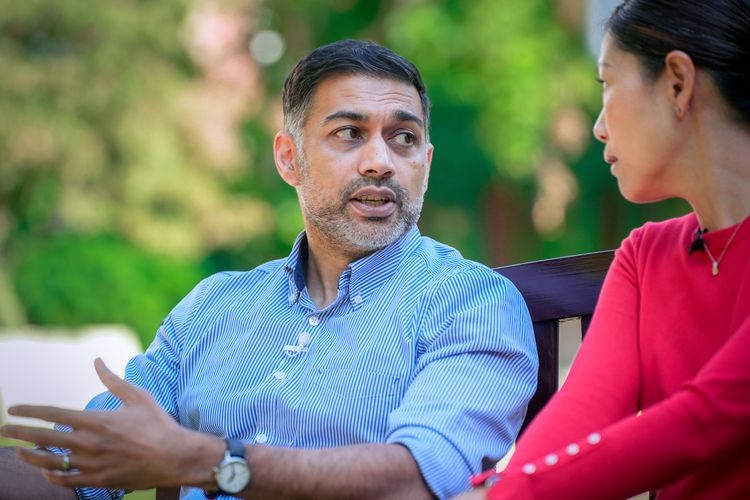
Tenet Law: Redefining Billable Hours and Empowering Work-Life Balance
Arun Chauhan at Tenet Law is pioneering a cultural shift in the legal sector. Moving the traditional rigidity of billable hours, he champions a flexible, people-centric approach. In part one of our series into Tenet Law, learn how Chauhan's innovative leadership is not just redefining work norms but also paving the way for a more inclusive and balanced professional environment, especially for women and parents in law. In a landscape where empowerment, equity, and social impact are becoming the new benchmarks, Tenet Law stands as a beacon of progressive change in London's legal community.
"Our philosophy is simple: support our people, and they will thrive. This is particularly true for working parents who need that extra flexibility."
Redefining Professional Norms
At Tenet Law, billable hours are a thing of the past. Chauhan believes in a model where the team knows the firm's financial needs without the pressure of individual hour targets. "We don't have billable hour targets, but everyone knows what we need to record. We have a rough idea of what each person's contribution should look like over a year," he says. This approach relieves stress and cultivates a culture of trust and collective responsibility.
"Traditional firms must demonstrate their covenants and show how they perform financially. However, our team operates differently. We collectively understand our overhead and the monthly revenue we need to generate. We're clear about the business's financial requirements and who should take on the responsibility," Chauhan explains.
Tenet Law's financial transparency and collective goal-setting are central to its operations. "Individual performance isn't measured by whether targets are met or not. It's about how we can collectively achieve our goals. We have a practice manager and myself overseeing the finances, and we share all the financial information with the team every two weeks in a transparent manner," Chauhan highlights.

Arun (left); Jessica Ng (right) discuss the founding of Tenet Law.
A People-Centric Model
This ethos extends beyond financial models to empower all team members to balance their professional aspirations and personal lives. "In terms of empowering both women and men in today's world, it's about enabling them to pursue their dreams while also taking care of their families or finding time, which is essential," Chauhan adds.
Moreover, this innovative model extends its benefits beyond the confines of the office. At Tenet Law, the emphasis on flexibility and autonomy is paramount. Employees are encouraged to manage their schedules, prioritizing work quality over hours logged. This approach boosts productivity and nurtures a healthy work-life balance, which is essential in today's fast-paced world.
"The key is in giving people control over their time. We believe in assessing the quality of work, not the quantity of hours."
Arun's people-centric vision is evident in how the firm supports its staff, particularly working parents. By eliminating rigid work schedules, Tenet Law has become a haven for mothers and fathers alike, enabling them to seamlessly juggle professional commitments with family life. This inclusivity is a testament to the firm's progressive ethos.
"Clients appreciate our approach. They understand we're people first, lawyers second, and this builds a deeper, more meaningful relationship."
Client relationships at Tenet Law also diverge from the convention. Arun points out that their clients value the human touch in legal services, resonating with the firm's less mechanical, more empathetic approach. This understanding between the firm and its clients strengthens trust and satisfaction.

Arun shares how what made him decide to redefine the legal industry.
The Future of Law: Adaptability and Inclusivity
Arun also reflects on the broader implications of Tenet Law's practices on the legal industry. Traditional law firms, he believes, could benefit from adopting similar models, prioritizing collective well-being over individual targets. This shift could mark a significant cultural transformation in the legal profession that values trust and collective responsibility.
"I think the industry is ready for a change. A model focusing on collective well-being can revolutionize how law firms operate."
Arun acknowledges that this model might be more conducive for seasoned lawyers than newcomers. The lack of strict oversight and structured targets requires a level of experience and self-discipline that typically comes with years in the field. Thus, while this model presents numerous advantages, it also necessitates a certain level of professional maturity.

Jessica shares with Arun her story of burnout and the need for more flexibility.
Shifting Client Dynamics: Building Trust Beyond Billables
Arun Chauhan's innovative ethos at Tenet Law marks a significant departure from traditional legal practices, fostering a workplace where flexibility, empowerment, and collective responsibility are not just ideals, but realities. This shift heralds a promising future for the legal profession, where work-life balance and inclusivity are integral to success. As the legal industry stands at the cusp of this transformative journey, Tenet Law's model serves as a beacon, inspiring a new era of equity and humanity in law.
Interested in hearing more? Watch the whole interview here below:

